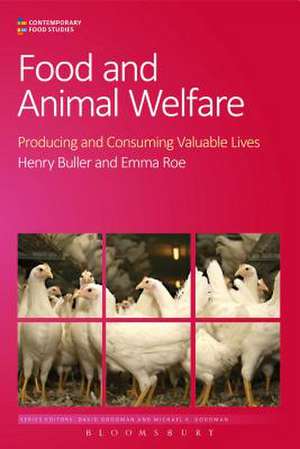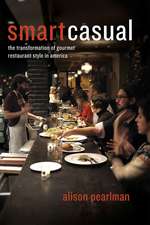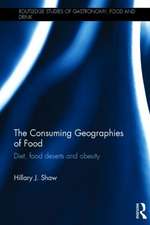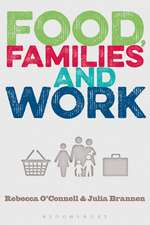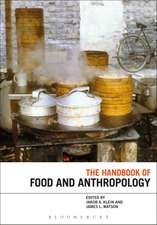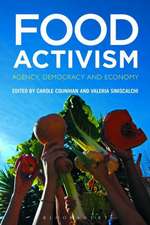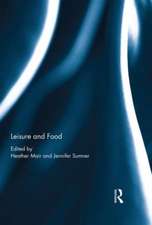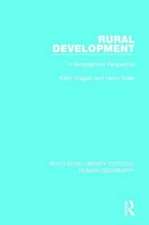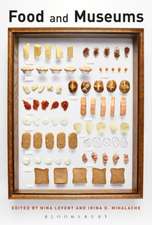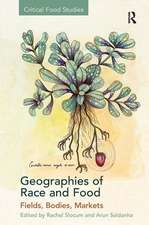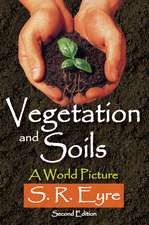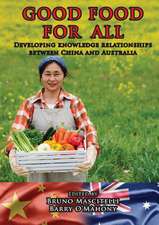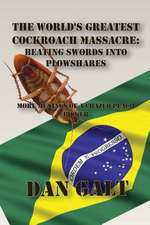Food and Animal Welfare: Contemporary Food Studies: Economy, Culture and Politics
Autor Professor Henry Buller, Dr Emma Roeen Limba Engleză Paperback – 2 mai 2018
| Toate formatele și edițiile | Preț | Express |
|---|---|---|
| Paperback (1) | 217.35 lei 3-5 săpt. | |
| Bloomsbury Publishing – 2 mai 2018 | 217.35 lei 3-5 săpt. | |
| Hardback (1) | 598.09 lei 6-8 săpt. | |
| Bloomsbury Publishing – 2 mai 2018 | 598.09 lei 6-8 săpt. |
Preț: 217.35 lei
Preț vechi: 245.10 lei
-11% Nou
Puncte Express: 326
Preț estimativ în valută:
41.59€ • 45.17$ • 34.94£
41.59€ • 45.17$ • 34.94£
Carte disponibilă
Livrare economică 01-15 aprilie
Preluare comenzi: 021 569.72.76
Specificații
ISBN-13: 9780857857071
ISBN-10: 085785707X
Pagini: 232
Ilustrații: 20 bw illus
Dimensiuni: 156 x 234 x 23 mm
Greutate: 0.33 kg
Editura: Bloomsbury Publishing
Colecția Bloomsbury Academic
Seria Contemporary Food Studies: Economy, Culture and Politics
Locul publicării:London, United Kingdom
ISBN-10: 085785707X
Pagini: 232
Ilustrații: 20 bw illus
Dimensiuni: 156 x 234 x 23 mm
Greutate: 0.33 kg
Editura: Bloomsbury Publishing
Colecția Bloomsbury Academic
Seria Contemporary Food Studies: Economy, Culture and Politics
Locul publicării:London, United Kingdom
Caracteristici
Key resource for students studying animal welfare issues from a social science perspective
Notă biografică
Henry Buller is Professor of Geography at the University of Exeter, UK. Emma Roe is Associate Professor in Human Geography at the University of Southampton, UK.
Cuprins
Introduction: Food And Animal Welfare 1. Food And The Animal 2. Worthy Lives 3. Food Animal Care 4. Selling Welfare 5. Globalisation And Farm Animal Welfare 6. Emerging Welfare Concerns In China7. Future Food Animals: Future Protein Bibliography Index
Recenzii
Appropriate audiences for Food and Animal Welfare include anthropologists who study food or human-animal interactions; scholars interested in post-humanist approaches; anyone who wants to understand the nuts and bolts of what processes and practices deliver animal products to the table; graduate students, and advanced undergraduates. I think this book, in all or part should be required reading for students of food anthropology, economics, animal science, biology, and food systems ethics.
This is a much needed critical intervention into the politics and ethics of animal agriculture and issues of animal care. As Buller and Roe remind us, these are subjects that cannot be owned by any one field, not by veterinary scientists or ethicists. Questions about animal welfare are also deeply social, making this book all the more powerful by reminding us of our own interdependence with those nonhuman animals that feed us.
What becomes manifest as body eats body? Interfacing animal and agro-food studies - mixing science, economics and ethics; tracing bodies, body-parts, feelings and foodstuffs - the authors centralise animal welfare as the hinge for answering this provocative question. Addressing complex, often contradictory events - caring and killing, raising and erasing, fattening and rendering - they close the distance between field and fork, conjuring new sensibilities with which to rethink the politics of livestock production and consumption.
This is a much needed critical intervention into the politics and ethics of animal agriculture and issues of animal care. As Buller and Roe remind us, these are subjects that cannot be owned by any one field, not by veterinary scientists or ethicists. Questions about animal welfare are also deeply social, making this book all the more powerful by reminding us of our own interdependence with those nonhuman animals that feed us.
What becomes manifest as body eats body? Interfacing animal and agro-food studies - mixing science, economics and ethics; tracing bodies, body-parts, feelings and foodstuffs - the authors centralise animal welfare as the hinge for answering this provocative question. Addressing complex, often contradictory events - caring and killing, raising and erasing, fattening and rendering - they close the distance between field and fork, conjuring new sensibilities with which to rethink the politics of livestock production and consumption.
